Energy
Sierra Leone embarks on 5th Offshore Licensing Round
In this interview, Director General of The Petroleum Directorate of Sierra Leone (PDSL), Mr. Foday Mansaray, discusses the announcement of the nation’s newest and most exciting Licensing Round and the potential to explore for oil and gas in Sierra Leone. What is the current state of the 5th Offshore Licensing Round and what can you tell us about the prequalified companies and the opportunities they bring to Sierra Leone? Sierra Leone’s 5th Offshore Licensing Round was officially launched on 18 May 2022 during the African Energy Summit at the Mayfair Hotel in London. The Licensing Round will close on 30 September 2022 during which all interested companies are expected to submit their bids. Prequalified companies will be issued a ‘Notice of Qualification’ and subsequently be invited for negotiations. Having officially launched on 18 May 2002, we have only just completed a comprehensive list of international oil companies (IOCs) who have been ‘Specially Invited’ to apply for prequalification, where The Petroleum Directorate of Sierra Leone (PDSL) assesses their complete financial, technical and HSE capabilities. This list has been compiled taking cognisance of the IOCs’ global reputation and operational history. We are very optimistic of forming a long-lasting partnership between Sierra Leone and any number of these companies. As we speak, we have received applications from 3 companies; anything decided in the meantime will be communicated to the oil and gas community at the conclusion of the Licensing Round, post 30 September 2022. What are the steps set by PDSL that a bidder must follow in order to participate, specifically with regards to in-country regulation? There are 10 very simple and transparent steps that we have devised for companies to follow. We anticipate that it will take 85 calendar days from application to the ratification of a license. The process would follow the following steps: ● Pre-qualification: a given IOC will submit a formal application for pre-qualification that includes their Work Program, Technical and Financial Capabilities, Health, Safety & Environmental Policies and Corporate Social Responsibility Plan; all must be submitted with supporting documents;● PDSL will evaluate the IOC’s application and then issue a ‘Notice of Qualification’ for the 5th Licensing Round within 10 Business Days;● PDSL will invite the IOC for negotiations;● A Provisional License will be granted to the IOC, upon successful negotiations;● The IOC will either accept, or decline, the Provisional License;● If accepted, a Draft Petroleum Agreement is sent to the IOC for ‘No Objection’;● The Draft Petroleum Agreement is sent to the Ministry of Finance, the Attorney General & The Ministry of Justice for ‘No Objection’;● PDSL and the IOC sign the Petroleum Agreement;● The Petroleum Agreement is sent to Parliament for ratification;● The Parliament ratifies the Petroleum Agreement. What effect has the Licensing Round, including fiscal terms and company benefits offered, had in the successful promotion of Sierra Leone and its energy market? The Licensing Round has showcased Sierra Leone’s competitive fiscal terms and predictable regulatory framework, which has attracted interest from various IOCs. The feedback we have received thus far has been very encouraging and positive, especially around the efficiency, simplicity and transparency of our application and awards process. What is very apparent is that the round’s launch has been timely, as Sierra Leone seeks to fill the energy gap created as a result of the global shortage of access to oil and gas. What is the expected growth for Sierra Leone’s upstream segment, and what recent highlights and milestones can you share with us? I wholeheartedly believe that Sierra Leone is on the cusp of joining other oil and gas producing nations. Given the success story along the conjugate margin in Guyana, it is only a matter of time until Sierra Leone joins this illustrious group. Since April 2021, Innoson Oil and Gas (IOG) has been progressing its exploration work program by conducting comprehensive studies and analysis of our seismic data, coupled with remote sensing studies. Moreover, on 13 May 2022, IOG announced an estimated recoverable resource of 8.2 trillion cubic feet of gas and 234 million barrels of oil in their acreage; IOG’s findings have also been independently corroborated by the Ryder Scott Company. We look forward to the next steps of their work program, which will lead to a drilling campaign in the near future. With a proven working petroleum system with 4 discoveries, from a total of 8 wells drilled throughout its history, we have all the elements required to maintain a petroleum system where hydrocarbons can be found, such as: ● A high-quality mature type-2 source rock with a Hydrogen Index (HI) of 482-795, and a Total Organic Carbon (TOC) of 4-20%. Guyana’s HI and TOC are 450-613 and 4-10% (at Liza-1), respectively;● A migration path;● A reservoir rock;● Stratigraphic and Structural trapping mechanisms; and● Effective seals. All these have been proven in our basin, so we’ll keep a close eye on it. In past years, what binational and private cooperation would you highlight that has brought prosperity to Sierra Leone, and what do you expect to see in the next few years? PDSL has existing bilateral agreements with GNPC in Ghana, as well as the Ministry of Mines and Hydrocarbons of Equatorial Guinea. These agreements will enhance capacity building and enable Sierra Leone’s petroleum sector to learn valuable lessons from these producing nations. We are also currently actively engaged with ANPG, PASA and GNPC-Gambia to create a pathway for collaboration between our nations. I firmly believe that collaboration with like-minded institutions will provide an excellent platform for us during our exploration, development and eventual production. Africa Oil Week’s (AOW) latest edition is scheduled for the first week of October in Cape Town. What does PDSL expect to achieve from its participation? PDSL has been involved in strategic promotion and marketing of Sierra Leone’s potential and petroleum opportunities. We are always on a mission to form strategic partnerships with IOCs who share our vision of transparency, performance-driven attitude, keen sense of collaboration and drive to become a net producer of
Read more »First Oil expected “this month” at Ikike subsea tie-back in Nigeria
The Ikike field will be put on production this month, said this morning Victor Bandele, Deputy Managing Director at TotalEnergies EP Nigeria. His remarks were made during the opening of the Nigerian Content Seminar in Abuja, which marks the start of DMG Events’ 21st NOG Conference & Exhibition. The Ikike field is developed as a tieback to the Amenam platform on OML 99 and has a targeted peak production of 32,000 barrels per day (bpd). Its final investment decision (FID) was taken back in January 2019. The project set new local content records, with an overall Nigerian content target of 90%. The project management was fully executed in-country, along with all the detailed and basic engineering. In total, the development of Ikike create over 3,000 direct jobs, according to TotalEnergies. Details on the development of the Amenam-Kpono hub are available in the “Projects” section within your Hawilti+ research terminal.
Read more »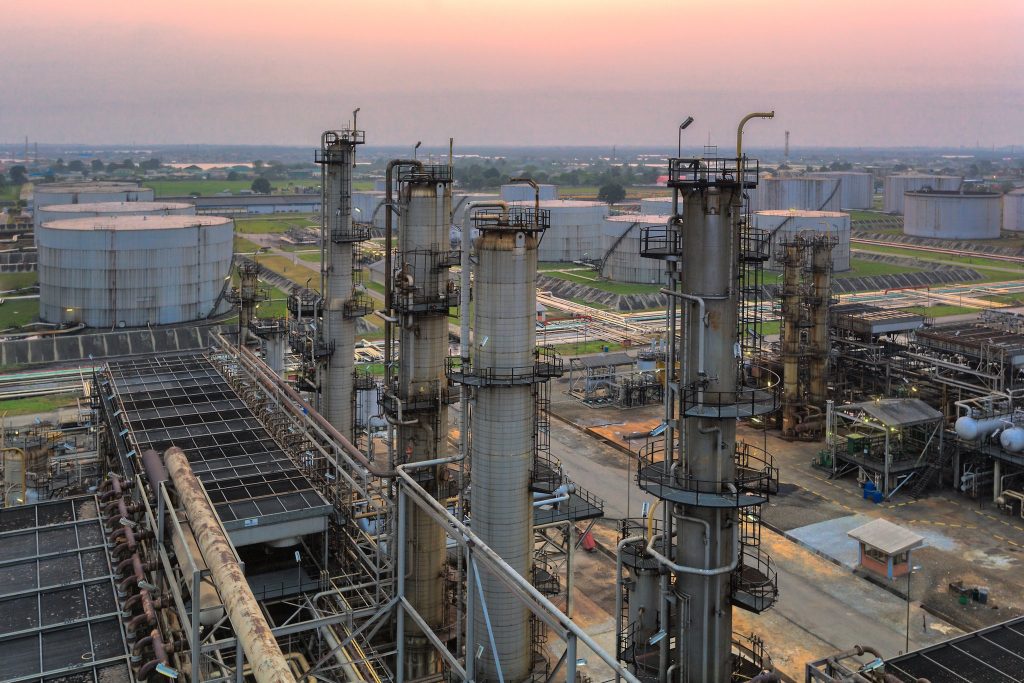
Nigeria: FEED contract awarded for new 100,000 bpd refinery in Port Harcourt
Maire Tecnimont has just announced that its subsidiary Tecnimont has been awarded a new FEED contract by African Refineries Port Harcourt Limited (ARPHL) for a new 100,000 barrels per day (bpd) refinery in Nigeria. The new plant is expected to be built inside the existing Port Harcourt Refinery complex, where Tecnimont is already rehabilitating the refinery there under a $1.5bn EPC contract. The FEED contract includes a feasibility study for the production of sustainable aviation fuel (SAF, or Biojet) based on NextChem technology, Tecnimont said. ARPHL is a consortium of Nigerian and foreign investors that won a bid to run and operate the deep conversion refinery under a PPP scheme, according to its website. ARPHL notably signed a 64-year lease with the NNPC Ltd for 45ha of land within the existing complex of the state-owned Port Harcourt Refinery. The plant is expected to be commissioned in 2025. Details on African refineries and upcoming projects can be found within the Hawilti+ research terminal and are analysed every quarter within our Quarterly Refineries Watch.
Read more »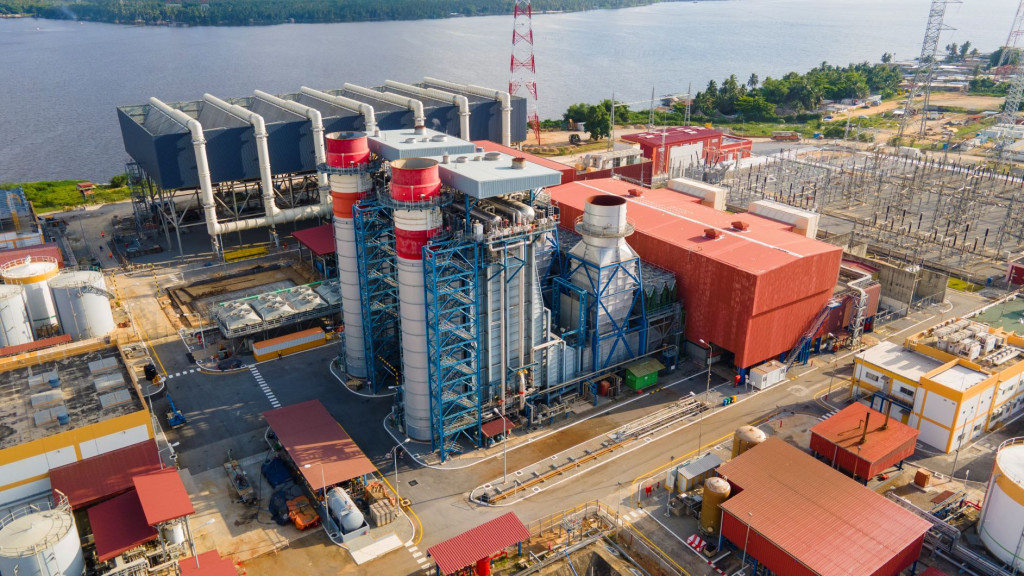
Côte d’Ivoire adds 180 MW to flagship gas-to-power plant in Abidjan
On Monday this week, Côte d’Ivoire added another 180 MW to its Azito gas-to-power complex in Yopougon, Abidjan. The facility has been under expansion since 2019 under the Azito 4 project, which includes the new 180 MW gas turbine inaugurated this week, and a 74 MW steam turbine. Azito 4 represents an investment of some €330m and is expected to produce about 2 000 GWh every year upon completion. It follows several phases of expansion since the project was initially conceived in the late 1990s under a 24-year concession agreement. The facility is equipped by GE turbines, including the new GT13E2 2012 MXL2 turbine commissioned this week, which is now the biggest one installed in the country. Azito successfully monetizes domestic gas produced offshore Côte d’Ivoire by Foxtrot and national oil company PETRO-CI. Its conversion to a combined-cycle facility in 2015 notably helped in reducing carbon emissions by almost 450,000 tCO2e/year. Details on Azito’s history, operational and sustainability performances are available in the “Projects” section within your Hawilti+ research terminal.
Read more »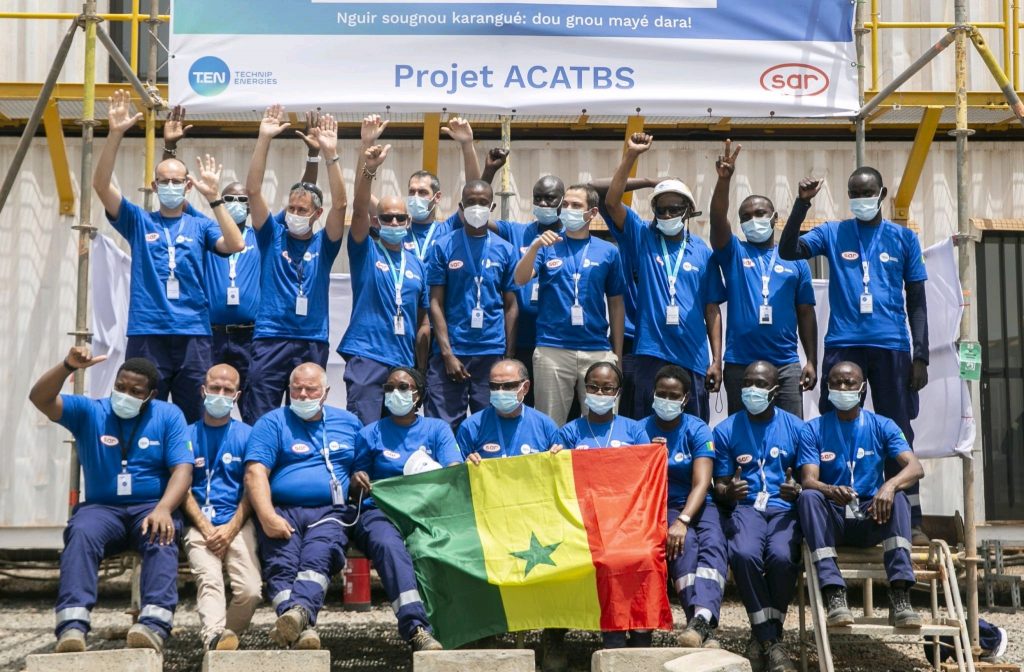
TechnipEnergies completes Senegal’s refinery expansion project
On June 29th, TechnipEnergies Country Director for Senegal, Franck Pliya, announced the holding of the last Steering Committee meeting of the ACATBS project at the SAR Refinery in Dakar. The contractor had been involved in a significant upgrade and expansion of the refinery over the past months, which culminated in a facility shutdown in Q1 this year to synchronise several new units. The ACATBS project (projet d’Augmentation de Capacité et d’Adaptation des unités pour le Traitement du Brut Sénégalais) notably targeted the expansion of the refinery’s capacity from 1.2m to 1.5m tonnes per year (tpy). It consisted of the installation of a pre-flash column to increase production capacity by 30%, and the extension of the reforming unit to enable the processing of domestic crude oil from the Sangomar offshore field, where first oil is expected in 2023. “Through this project, we have achieved 1.2m hours without accident, remained on budget, and managed to ensure an 80% participation from Senegalese companies with a local workforce of over 500 mobilised on site during the peak of the project,” Franck Pliya wrote. SAR mostly imports crude oil from Nigeria (especially Erha and Bonny Light) before refining it for distribution in Senegal and the landlocked subregion, especially in Mali. Its facilities include distillation units, a catalytic reformer and a MEROX unit to treat kerosene. The facility was initially commissioned in 1963 and is owned at 46% by the state-owned national oil company PETROSEN. Full details on the African refining sector can be found in Hawilti’s Quarterly Refineries Watch, available within your Hawilti+ research terminal (plus.hawilti.com).
Read more »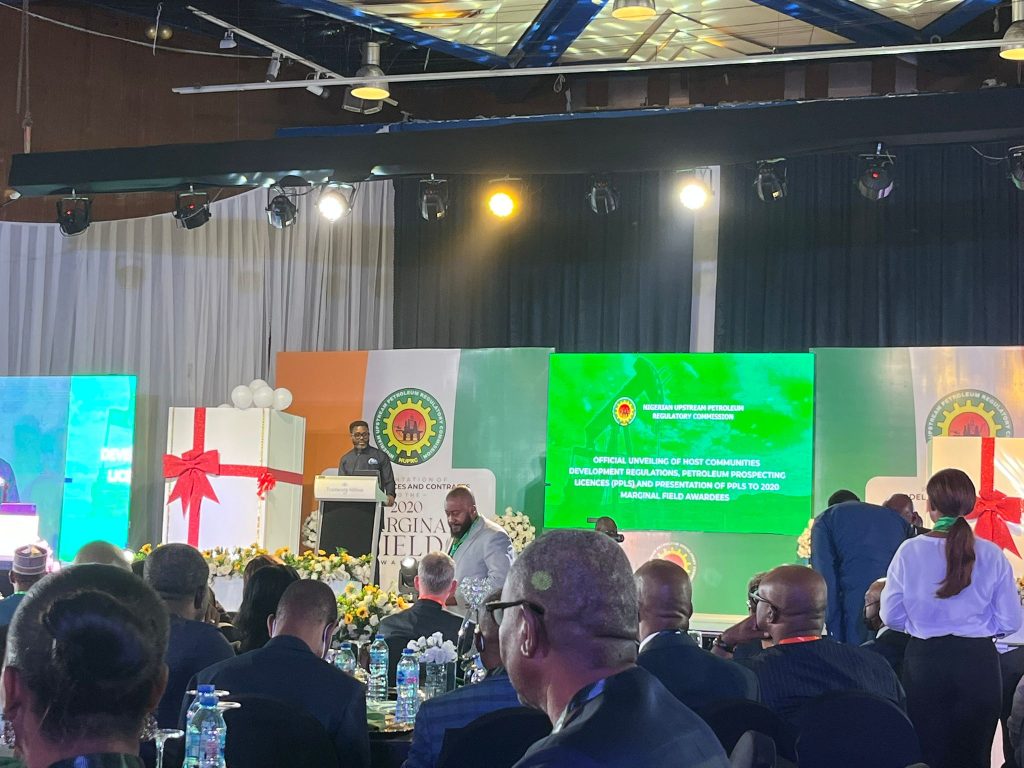
Nigeria: get to know the awardees of the latest Marginal Fields Bidding Round
Earlier this week, Nigeria held a grand ceremony in Abuja to unveil its Host Communities Development Regulations and Petroleum Prospecting Licences (PPLs) under its newly-adopted Petroleum Industry Act (PIA). The regulations are expected to provide a more durable and sustainable framework to engage local communities in the development of the country’s oil and gas sector. The PPLs regulations, on the other side, are a departure from the former regime as they mark the end of Farm-out Agreements for marginal fields. Moving forward, marginal fields will be awarded following open, competitive tenders resulting in the award of a PPL. The PPLs currently have a term of three years which can be extended by an additional three years, making the licenses valid for six years in total. The ceremony held this week is the result of the 2020 Marginal Fields Bidding Round, where 540 applicants pre-qualified, out of which 161 were declared preferred bidders. According to Minister of Petroleum Resources Chief Timipre Sylva, the round was able to generate NGN 200bn in revenues to the Nigerian government. Successful awardees who were able to pay for their signature bonuses were given their PPLs this week. They now have to form special purpose vehicles (SPVs) with their partners to develop their fields, in what was called an “arranged marriage” by many new licence owners. “Nigeria is committed to implementing full beneficial ownership disclosure of the awardees through the development of a web-portal,” said Engr. Gbenga Komolafe, Chief Executive of the new Nigerian Upstream Petroleum Regulatory Commission (NUPRC). The list of awardees announced this week, including individual entities, their respective fields and PPL numbers, is available within your Hawilti+ research terminal at plus.hawilti.com.
Read more »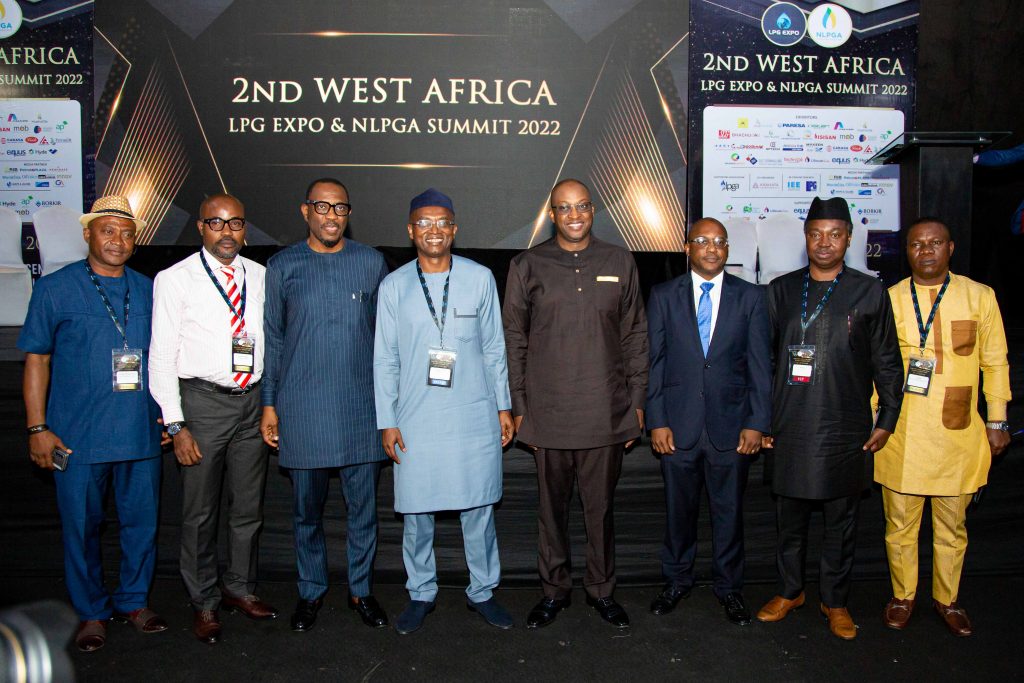
Nigerian stakeholders call for policy adjustments to increase adoption of clean cooking fuels
The Nigerian public and private sector gathered at the call of the Nigeria LPG Association (NLPGA) during the 2nd West Africa LPG Expo & NLPGA Summit 2022 in Lagos (June 23-24) to push for a stronger adoption of gas across Africa’s biggest economy. The Summit welcomed captains of the industry and leading public figures, including Chief Olusegun A. Obasanjo, Former President of Nigeria; Engr. Simbi K. Wabote, Executive Secretary of the Nigerian Content Development and Monitoring Board (NCDMB); Mr. Nuhu Yakubu, President of the NLPGA and Managing Director of Banner Energy; Dr. M.M. Ibrahim, Chairman of the National Gas Expansion Programme; Mr. Felix Ekundayo, Managing Director of ASIKO Energy and Gas Terminalling; Mrs. Nkechi Obi, Group Managing Director/CEO of Techno Oil; and Mr. Adyo Adeshina, Programme Manager of the LPG Expansion Implementation Plan within the Office of the Vice President, among others. A key takeaway from the event was a call from the industry for policy adjustments around the fiscality of LPG in Nigeria, especially on output VAT. A misplaced VAT was notably blamed for decreased LPG consumption in the country since 2021, year when supplies started to stagnate around the 1m metric tonne threshold and stopped increasing at double digit figures. Key participants also highlighted the need for better coordination amongst various governmental agencies involved across the value-chain, from customs to roads. A Push for Localisation Representatives of the Nigerian government notably explained how they are taking steps to boost LPG production and availability across the country. During the Summit, Dayo Adeshina recalled that Nigeria LNG, the country’s biggest LPG producer, recently decided to allocate all of its LPG production to the domestic market. He further revealed that talks were ongoing with additional producers of gas liquids, including ExxonMobil and Chevron, to decrease exports and supply the domestic market instead. ExxonMobil is notably operator of the Bonny River Terminal where it processes natural gas liquids into cooking gas, among others. On the other side, Chevron operates the Escravos Gas Plant and Escravos Gas-to-Liquids facility with a capacity of 33,000 barrels per day (bpd). Nigeria has some of the lowest gas penetration rates in Africa despite holding the continent’s largest proven reserves of natural gas. In 2020, the government launched the Decade of Gas initiative to try to incentive gas consumption and adoption across the economy. However, soaring prices of cooking gas since 2021 have made LPG unaffordable for many Nigerians. Increasing domestic output is seen as a solution to mitigate risks against soaring import prices, in a country that consumed slightly over 1m metric tonnes of LPG last year. The Achievements of the Gas Expansion Programme The Decade of Gas is notably backed by the Nigerian Gas Expansion Programme (NGEP), which focuses on the distribution of Autogas (CNG) and LPG across gas stations operated by the state-owned NNPC Ltd. Its immediate target, which is yet to be met, was to convert 1 million of Nigeria’s 22 million PMS-fueled vehicles to gas by 2021. During the Summit, NGEP Chairman M.M. Ibrahim shared updates on its advancement and the achievements realized so far. In 2020 and 2021, over 12,000 licensed retail outlets were notably classified as fit-for-purpose for co-locations of Autogas fuel nationwide. In parallel, revised regulatory guidelines were issued for co-located Autogas fuel retail outlets and other gas solutions. After it confirmed the potential for Autogas nationwide, Nigeria proceeded to convert and commission over 30,000 of its public mass transport buses on dual fuels while supporting auto assemblers to keep producing fit-for-purpose dual fuel vehicles in-country. These have paved the ground for an acceleration of the country’s gas promotion agenda in 2022 and 2023, in a context of soaring petroleum products prices, especially diesel. Gas was adopted by the Nigerian government as a transition fuel and will remain a critical component of its energy mix. It is also seen as the ideal substitution fuel to expensive diesel, especially for industrial customers.
Read more »Eco Oil & Gas consolidates interest in Block 3B/4B offshore South Africa
In yet another deal within the Orange Basin, Eco (Atlantic) Oil & Gas has announced its acquisition of another 6.25% in South African block 3B/4B. The company already entered the block earlier this year when it acquired Azinam, who holds a 20% non-operated interest in the license. Eco Oil & Gas is acquiring its additional 6.25% from the Lunn Family Trust, one of the largest shareholders of Ricocure (Pty) Ltd. Ricocure is a 60% interest holding in Block 3B/4B. The license is located in the deep waters of the Orange Basin in the Southern African Atlantic coast, south of the maritime border between Namibia and South Africa. The zone is notably located along-trend of an emerging Mid-Cretaceous oil play where Shell and TotalEnergies discovered oil and gas at their respective Graff-1 and Venus-1 high-impact exploratory wells in Namibia in early 2022. Both wells were play-openers for a new petroleum province offshore Namibia and South Africa, which could be further proven with exploration on Blocks 3B/4B. The license has been subject to substantive exploration spending, including from previous operator BHP Billiton who acquired a 10,000km² GeoStreamer 3D survey in 2012, while Shell acquired a further 8,000km² of 3D to the north of the block at the same time. In addition to 3D seismic data, 1,400 km of multi vintage 2D seismic also spans the licence. Such data has allowed current partners, including new operator Africa Oil Corp since 2020, to identify an inventory of leads and prospects out of which Wolf, previously known as Aardwolf, could be subject to exploratory drilling. Details on the exploration of Block 3B/4B are available in the “Projects” section within your Hawilti+ research terminal.
Read more »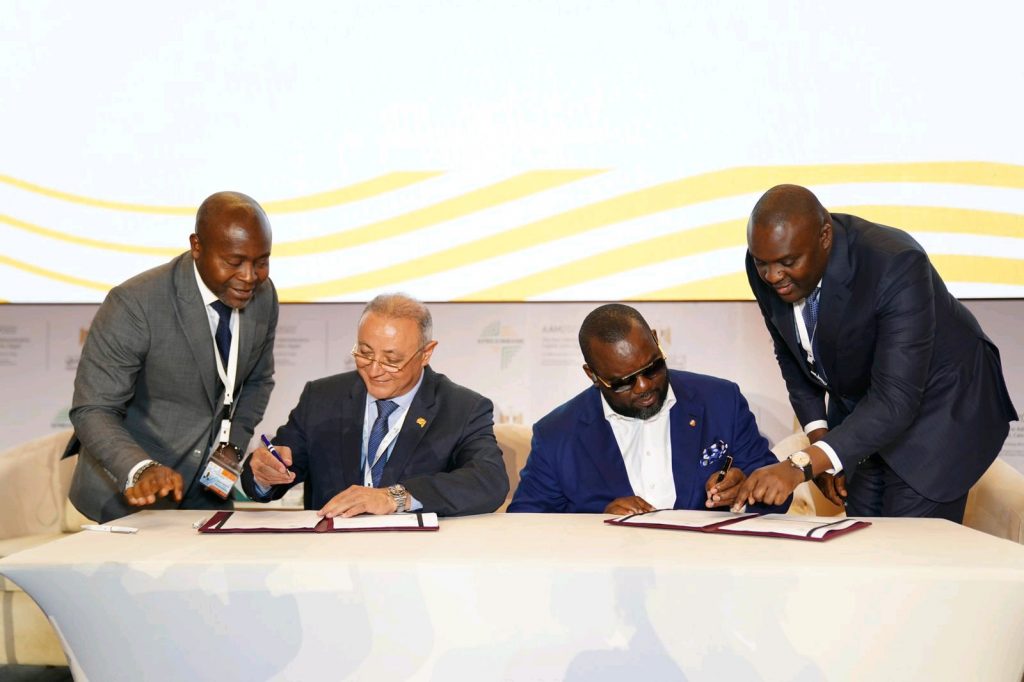
Afreximbank steps up support to first Africa-owned FLNG project
Last week in Cairo, the Afreximbank signed a Heads of Terms to support the establishment by UTM Offshore of the first Africa-owned floating LNG unit in Nigeria. Both companies had already signed a memorandum of understanding (MoU) at the end of last year. UTM Offshore has been working for a couple of years on deploying a floating unit that would process flared gas into LNG for the export market. In 2021, it received a License to Establish (LTE) and teamed up with LNG Investment Management Services (LIMS), a subsidiary of NNPC Ltd, to advance the project. It has now been joined by several international financial and technical partners, including KBR as owner’s engineer, and a consortium of JGC Corp. and Samsung Heavy Industries to execute the FEED. A final investment decision (FID) is expected in 2023 for a commissioning in 2026.
Read more »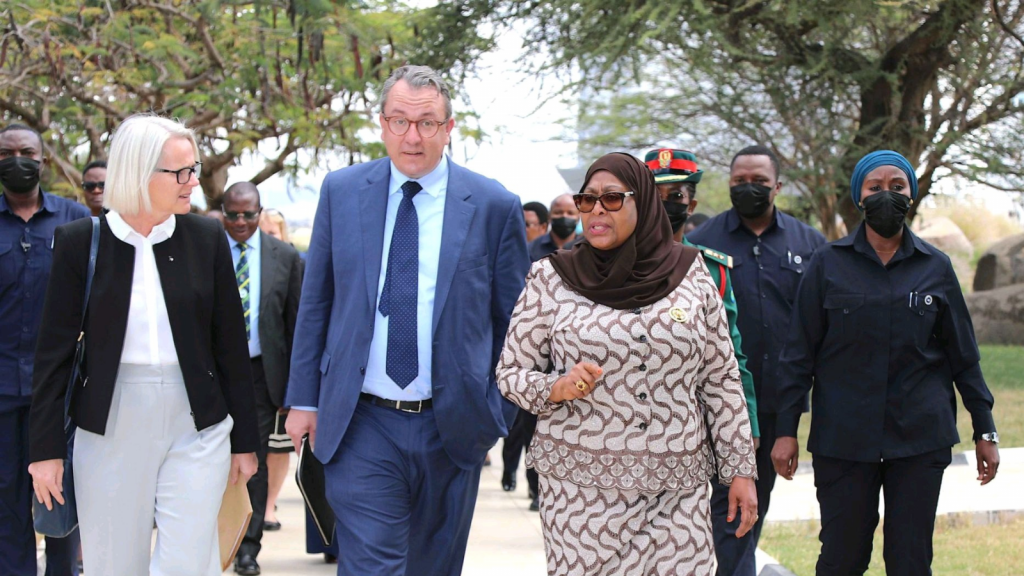
Tanzania LNG: HGA expected in December 2022, FID in 2025
Over the weekend, the Government of Tanzania signed a Framework Agreement with Equinor and Shell to support negotiations on the Tanzania Gas and LNG Project (TGP). The agreement marks another step towards the signing of the Host Government Agreement (HGA) expected before the end of 2022. Both international oil companies resumed negotiations mega-gas project in November 2021, aided by the renewed interest from the new Tanzanian leadership. Equinor operates Block 2 where it has discovered 20 Tcf of recoverable gas reserves in the early 2010s, while Shell operates Blocks 1 and 4, which it inherited from its combination with the BG Group in 2016. BG had previously discovered 16 Tcf of recoverable gas reserves on both blocks. While negotiations on the project continue to make progress, the final investment decision (FID) is not expected before 2025. Equinor has notably scheduled a 3-year planning and engineering programme for the pre-FEED and FEED and expects construction to take at least 4 years after that. On the Tanzanian side, hopes are that commissioning could be reached as early as June 2028. While it is too early to know what the project will look like, Equinor expects a liquefaction capacity of 7.5 million tonnes per annum (mtpa) from its Block 2 with an investment of $20bn. Part of the gas arriving at the facility in Lindi in southern Tanzania would also be reserved for the domestic market and the production of cooking fuels (LPG). If Shell replicates the same scheme, the project could see an investment of up to $40bn, making it by far the largest foreign investment in Tanzania’s history.
Read more »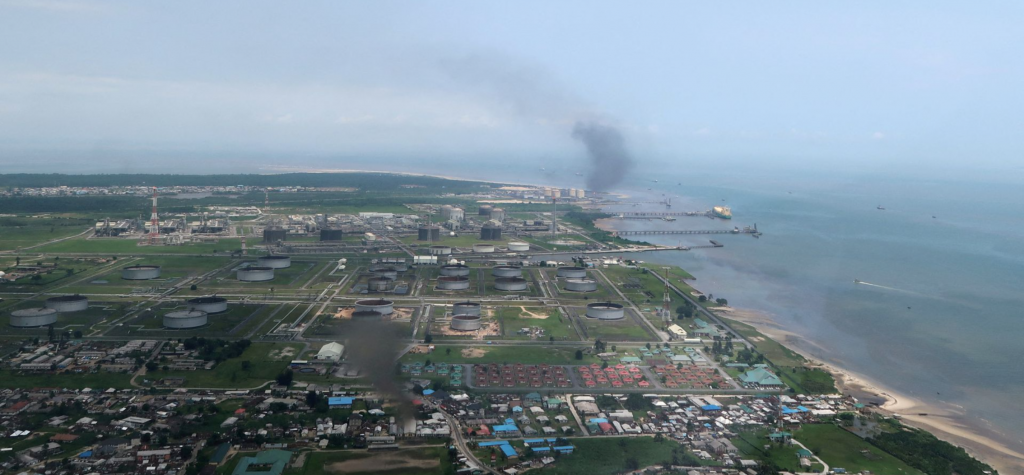
Nigeria: oil production reached historic low of only 1 million bopd in May 2022
Nigeria’s daily oil production averaged 1,024,371 barrels of oil last month, according to data by the Nigerian Upstream Petroleum Regulatory Commission (NUPRC). This marks a new all-time low for sub-Saharan Africa’s largest oil producer, who should be able to produce 2 million bopd and had its OPEC quota for May set at 1.753m bopd. Who is Under-Performing? Significant losses have been reported at the onshore Shell-operated Bonny Oil Terminal. The facility serves as an export hub for several of Shell’s onshore blocks in the Niger Delta and to several independent and marginal field operators, mostly via the Trans-Niger Pipeline (TNP). Operators exporting via the Bonny terminal suffer severe pipeline losses and crude theft. Earlier this year, Hawilti was able to view one of the terminal’s oil export data sheets, confirming that pipeline losses go as high as 90% for some operators. Meanwhile, performances have been sluggish across most of the remaining oil assets. Notable month-on-month losses have been reported at ExxonMobil’s facilities, including the Qua Iboe terminal (-44.5%) and the Erha FPSO (-37%). Who is Performing? The offshore segment, including shallow water assets operated by independents and IOCs and deep-water fields operated by IOCs are the only ones providing stable volumes. Month-on-month gains have notably been reported for Neconde Energy/NPDC via the Ugo Ocha FSO (+132%), for Eni’s Abo FPSO (+57%) and for AMNI Petroleum’s Okoro FPSO (+22%). “Deep-water assets continue to perform relatively well and are expected to keep supporting production moving forward,” said Mickael Vogel, Director & Head of Research at Hawilti. “Drilling campaigns will be helpful in that regard, with Shell currently drilling 3 infill wells at Bonga on OML 118 and TotalEnergies expected to start a multi-year drilling campaign on OML 130 later this year.” Details on Nigeria’s deep-water, shallow-water, onshore and marginal field assets are available in the “Projects” section within your Hawilti+ research terminal.
Read more »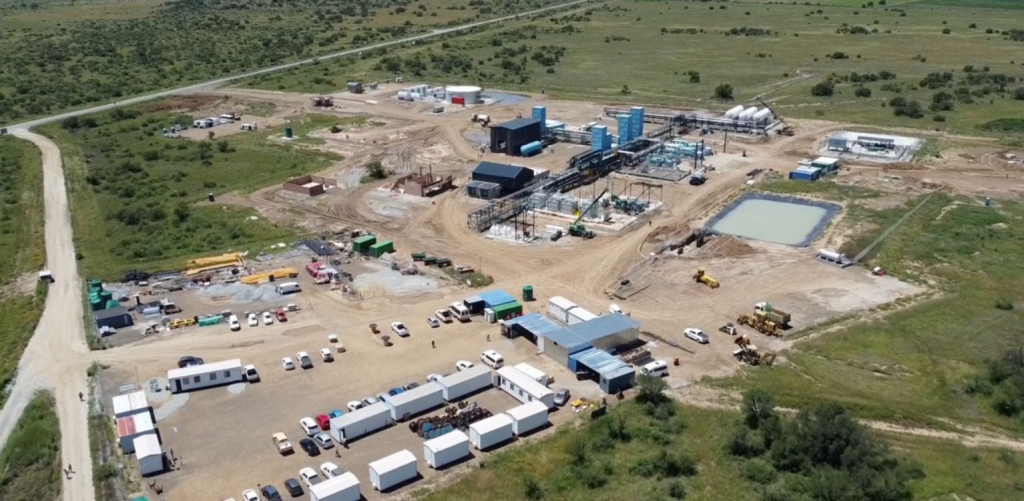
The US is contemplating increasing debt provided to South Africa’s leading gas, LNG, and helium project
The United States’ International Development Finance Corporation (DFC) is evaluating an increase of its loan to Renergen’s Virginia Gas Project in South Africa by up to $500m. The development finance institution (DFI), previously known as Overseas Private Investment Corporation (OPIC), had already provided $40m in debt to finance Phase 1 of the project. Its growing appetite is welcomed news as most gas infrastructure developers in Africa have criticized the withdrawal of Western DFIs from financing oil and natural gas projects on the continent. South Africa’s first LNG and helium project The Virginia Gas Project is developed by Tetra4, a wholly owned subsidiary of ASX-listed Renergen. It is developing South Africa’s first and only onshore petroleum production right to produce liquefied natural gas (LNG) and helium, a first in the country. Its Phase 1 includes a scalable gas plant and 52km of pipeline, and a maximum production target of 74.6 million cubic feet per day (MMcf/d) (about 350kg) of liquid helium and 2,700 GJ (50 tons) of LNG. Upon start of production, Renergen will notably become South Africa’s first distributor of LNG at filling stations through its partnership with French major TotalEnergies. Phase 2 is expected to follow by 2024, further increasing LNG production to meet an anticipated increase in demand and provide LNG supplies across all major highways in South Africa. Key contracts for phase 2 were awarded in early 2021, including the FEED studies, and the final investment decision (FID) is expected to be taken once these are completed. Phase 2 is designed to allow Renergen to produce significantly larger quantities of LNG and liquid helium: it should notably require a CAPEX of $800m and involve a drilling campaign of 297 wells, anticipated to build up to 44 MMscfd at full production. 65% of Phase 2’s anticipated production is already pre-sold to clients including Linde, Meser, Helium 24 and iSi. Details on the Virginia Gas Project, including contractors, financiers, and offtakers, are available in the “Projects” section within your Hawilti+ research terminal.
Read more »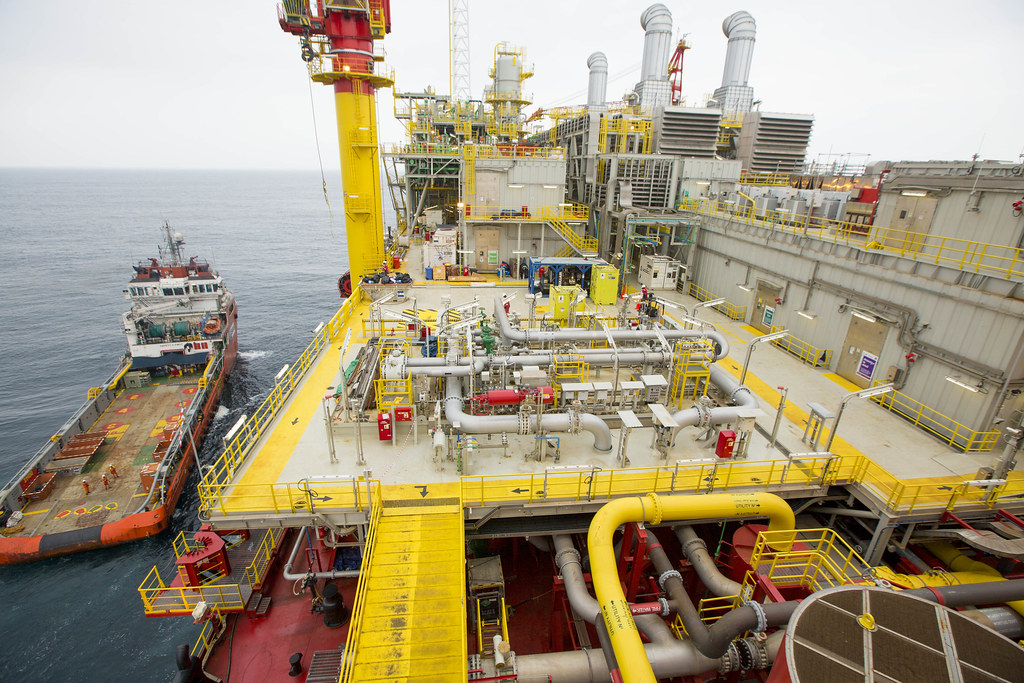
Tullow Oil and Capricorn Energy agree on all-stock merger deal
Tullow Oil and Capricorn Energy (formerly Cairn Energy) have agreed earlier this week on an all-stock merger deal worth over $800m. The combination of both companies will create one of Africa’s leading independent energy companies, and confirms the strong rise of M&A deals in Africa this year. The deal is likely to be implemented as a Court-sanctioned scheme of arrangement under which Tullow Oil would acquire all of the issued and to be issued shares of Capricorn Energy. Upon completion, Capricorn Energy shareholders would hold some 47% of the new combined group, and Tullow Oil’s shareholders the remaining 53%. While the name of the new combined company is yet to be revealed, it would sit on some 343m barrels of oil equivalent (boe) of reserves (2P) and 696m boe of resources with a production of some 96,000 boepd. The company would still be listed in London and be one of the largest Africa-focused energy independents. A Portfolio of Incremental, High-Return Investment Opportunities The new group will be present across lucrative assets in Ghana, Egypt, Gabon, and Côte d’Ivoire. Capricorn Energy notably entered Egypt in 2021 when it acquired Shell’s onshore assets in the Western Desert along with its consortium partner Cheiron. The gas-rich fields represent some 36,500 boepd of output for Capricorn Energy, with significant opportunity to deliver self-funded growth production via infill drilling and low-cost exploration. In Ghana, Tullow Oil’s success stories continues deliver returns while generating local value via the producing Jubilee and TEN fields where a drilling campaign is ongoing until 2025. New development wells are notably planned, especially at Jubilee South-East. Tullow Oil also has non-operated interests in key producing fields such as Espoir in Côte d’Ivoire or Tchatamba and Ezanga in Gabon. In 2021, the company’s working interest production averaged 59,200 boepd. Infrastructure-led exploration will be executed across these assets over the coming years, with opportunities to unlock additional reserves and maintain production decline. The wells will be reported within Hawilti’s Exploration Watch, available within the Hawilti+ Terminal. New Plays in Frontier Basins The new group could also be a key pioneer in the development of reserves in Kenya, Mauritania and Latin America notably. Tullow Oil is a partner in Project Oil Kenya, where a final investment decision (FID) is expected in 2023. The onshore project would deliver 120,000 bopd at peak and be Kenya’s first oil venture. Meanwhile, Capricorn Energy is hopeful that its C7 Block offshore Mauritania could yield success soon. The Dauphin-1 exploratory well could notably be drilled there in a couple of years.
Read more »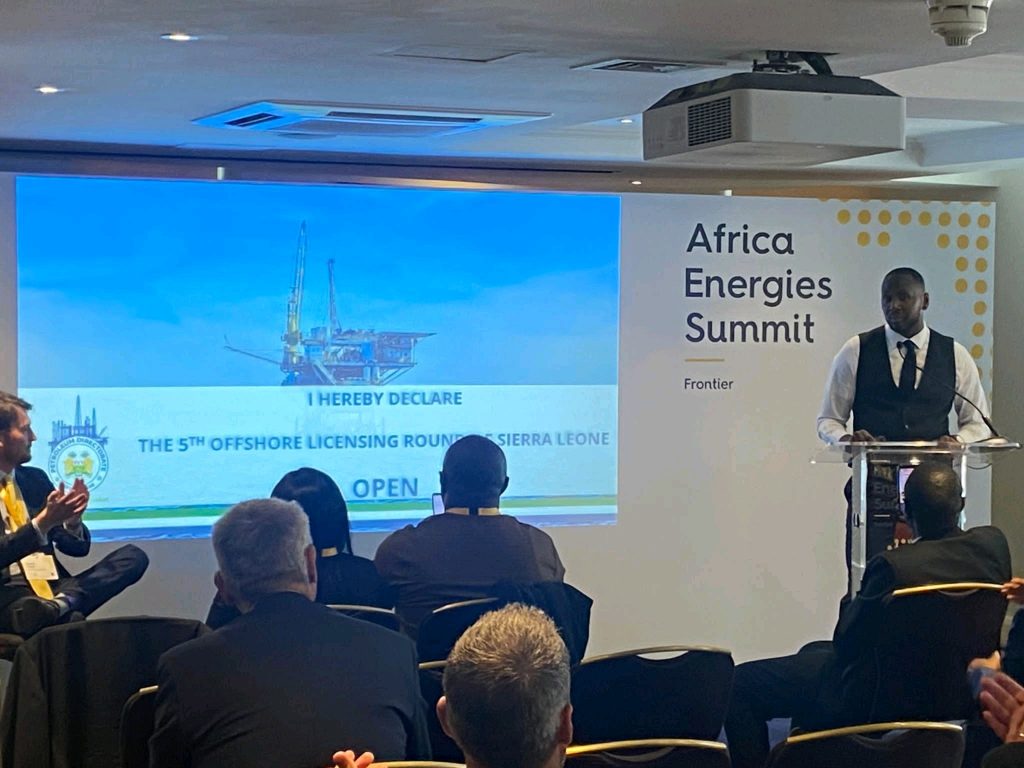
Sierra Leone launches 5th Petroleum Licensing Round
The Petroleum Directorate of Sierra Leone officially launched the country’s 5th Petroleum Licensing Round in London today. In total, 63,643km2 of offshore acreage is up for grab across 56 graticular blocks of some 1,360km2 each. A contract area is formed with a minimum of three graticular blocks. The Licensing Round will remain open until September 30th, 2022. It notably follows several announcements related to exploration offshore Sierra Leone earlier this month. On May 10th, Wildcat Petroleum announced it was granted non-exclusive right over 20 blocks offshore Sierra Leone where it will carry out a desktop study using geophysical and geological data. Last week, Innoson Oil & Gas also revealed the results of a third-party evaluation of its concession in the country by Ryder Scott Co, estimating up to 8.2 Tcf of gas and 234m barrels of condensate of P50 estimated un-risked gross prospective recoverable resources there. Sierra Leone has already shown oil deposits during previous exploration campaigns led by Anadarko, Repsol and Tullow Oil. These notably resulted in a few discoveries, though uncommercial ones. They include Venus B-1, Mercury-1, and Jupiter-1 by Anadarko in 2009, 2010, and 2012, and Savannah-1X by Lukoil in 2013.
Read more »
Mozambique to collaborate with IFC on new $4.5 bn, 1.5 GW hydropower project
The International Finance Corporation (IFC) has announced the signing of a collaboration agreement with Mozambique’s Ministry of Mineral Resources and Energy (MIREME) on the implementation of the 1.5 GW Mphanda Nkuwa Hydropower Project and its associated transmission facilities. The $4.5bn project will be constructed in Mozambique’s central Tete Province that borders Malawi, Zambia, and Zimbabwe. It will supply power both to the domestic market and to South Africa, and include a 1,300k high voltage transmission line connecting it to Maputo. Commissioning is expected in 2031. “IFC will work with the government in collaboration with GMNK to structure this important project, including the review of technical design, environmental safeguards, commercial and financial structuring,” the IFC said in a statement.
Read more »New study shows 8.2 Tcf potential at Innoson’s oil & gas concession offshore Sierra Leone
Innoson Oil & Gas, part of Nigeria’s IVM Innoson Group, revealed last week the findings of a third-party evaluation conducted by Ryder Scott Co. on its concession offshore Sierra Leone. According to the American engineering and geological consultants, Innoson Oil & Gas’ blocks could contain up to 8.2 Tcf of gas and 234m barrels of condensate of P50 estimated un-risked gross prospective recoverable resources in the Sierra Leonean basin. The Nigerian company had been awarded provisional Blocks 96, 97, 114, 115, 116, 117, 133, 134 and 135 in May 2020. The blocks are in shallow water off the coast of Sierra Leone. They are notably adjacent to the Reconnaissance Permit area that the Petroleum Directorate of Sierra Leone (PDSL) granted Wildcat Petroleum earlier this month. Interest for exploration in Sierra Leone is picking up with several companies currently conducting reconnaissance operations there. The country has already shown oil deposits during previous exploration campaigns led by Anadarko, Repsol and Tullow Oil. These notably resulted in a few discoveries, though uncommercial ones. They include Venus B-1, Mercury-1, and Jupiter-1 by Anadarko in 2009, 2010, and 2012, and Savannah-1X by Lukoil in 2013. In order to assess the potential of its concession, the company notably deployed an earth remote sensing (ERS) method, reducing the need for 2D and 3D seismic and well data. “Asset evaluation, a field development plan and the setup of a data room are vigorously pursued with the immediate objective to engage a farm-in partner,” Innoson Oil & Gas explained in a statement.
Read more »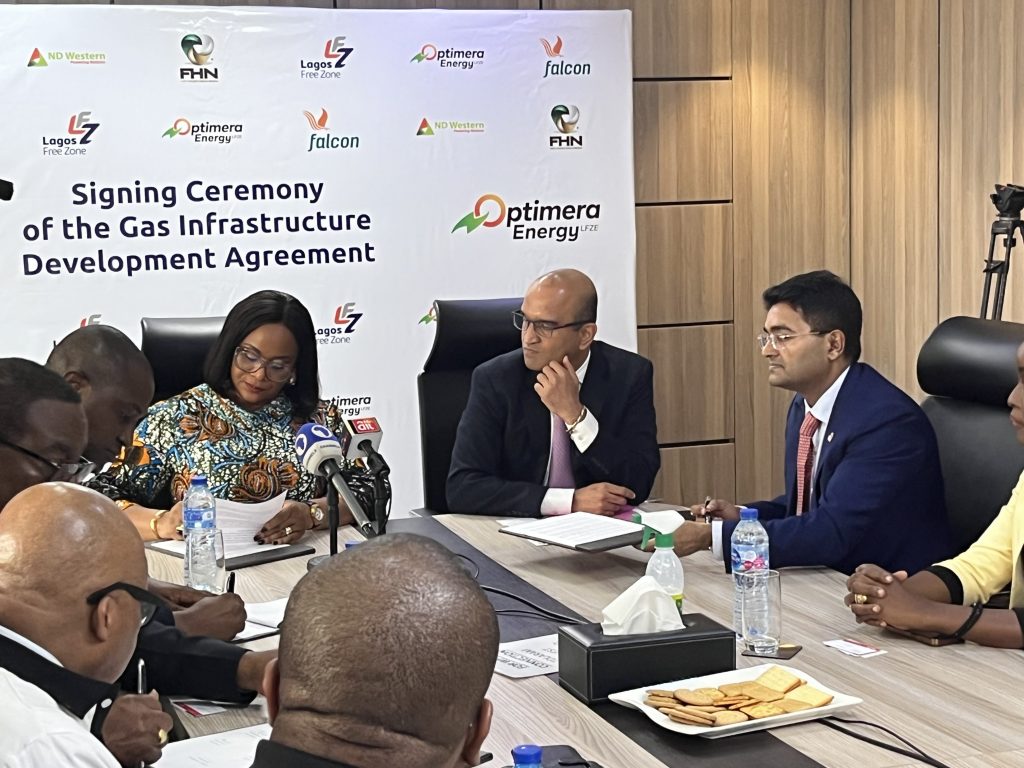
Nigerian companies team up to provide gas to West Africa’s leading industrial hub
The Lagos Free Zone (LFZ) has officially signed earlier today a Gas Infrastructure Development Agreement with Optimera Energy FZE to develop its own gas distribution network. The new project gathers some of Nigeria’s leading gas players around a new venture committed to promoting gas-based industrialisation. West Africa’s leading industrial hub needs gas Located on the Lekki Corridor, the Lagos Free Zone covers some 830ha and is quickly emerging as West Africa’s leading integrated multi-cluster industrial zone. The project is promoted by the Tolaram Group of Singapore and is co-located with the Lekki Port, Nigeria’s deepest multi-purpose seaport, expected to be completed this year. LFZ has already been successful in attracting several industrial companies and manufacturers including TG Arla, Kellogg’s, Colgate, BASF, Saba Building Systems, or Raffles Oil amongst others. As the zone grows, it seeks to cater for potential high-growth sectors such as FMCG, pharmaceuticals, chemicals, engineering, non-metallic minerals, logistics and mixed-use. This is in return increasing the need to provide world-class infrastructure, including a reliable energy supply. Optimera Energy is now in charge of building, owning, and operating the natural gas distribution network within the free zone. The project is expected to require some $20-25m, with uninterrupted deliveries of piped gas expected to start in 2024. Initial capacity will be set at 5 MMscf/d before being gradually increased to 40 MMscf/d as demand in the zone picks up. The special purpose vehicle (SPV) gathers three of Nigeria’s strongest gas players including natural gas distributor Falcon Corporation Ltd and independent oil & gas companies ND Western and First Hydrocarbon Nigeria (FHN) via their respective subsidiaries ND Western Midstream Ltd and FHN Gas Ltd. “The Optimera consortium is made up of like-minded shareholders who are passionate about a common goal: accelerating the further growth of domestic gas utilisation in Nigeria. Having reliable dedicated gas supply infrastructure installed in the LFZ adds tremendous value to existing industrial concerns and will increase the Zone’s attractiveness to future customers.” Audrey Joe-Ezigbo, Managing Director of Optimera Energy and Deputy Managing Director of Falcon Corporation. Promoters of gas-based industrialisation Falcon Corporation has been successfully operating the Ikorodu natural gas franchise in Lagos since November 2006 and will bring its experience in building and operating gas pipeline networks for industries. The company is also a bulk distributor of Liquefied Petroleum Gas (LPG) in the domestic market and is actively developing LPG bulk storage infrastructure in the Niger Delta. On the other side, both ND Western and FHN are amongst Nigeria’s biggest gas producers from OML 34 and OML 26 in the Niger Delta, with combined gas reserves of over 4 Tcf. Via Optimera Energy, they will be transporting their gas to the Lagos Free Zone via the Escravos-Lagos Pipeline System (ELPS). ND Western has notably increasingly positioned itself as an enabler of industrialisation in Nigeria. The company already supplies gas to several power plants in the country via ELPS and exports gas to West African markets via the West Africa Gas Pipeline (WAGP). On OML 34, it has recently embarked on the development of an industrial park providing industries with direct access to cheaper gas directly at the pump. The rise of gas-to-industry in Nigeria Because the power sector remains illiquid, the promotion of gas utilization across other industries is seen as a priority under Nigeria’s Decade of Gas initiative. Chief amongst them is the expansion of the downstream gas sector, especially Autogas for cars and piped natural gas (PNG) for industries. Consequently, industrial gas off-takers are on the rise, and the volumes of domestic gas monetised by Nigerian industries (gas-to-industry) have doubled between 2015 and 2021. To know more about the trends, actors, and projects shaping up Nigeria’s natural gas sector, please log into your Hawilti+ research terminal at plus.hawilti.com.
Read more »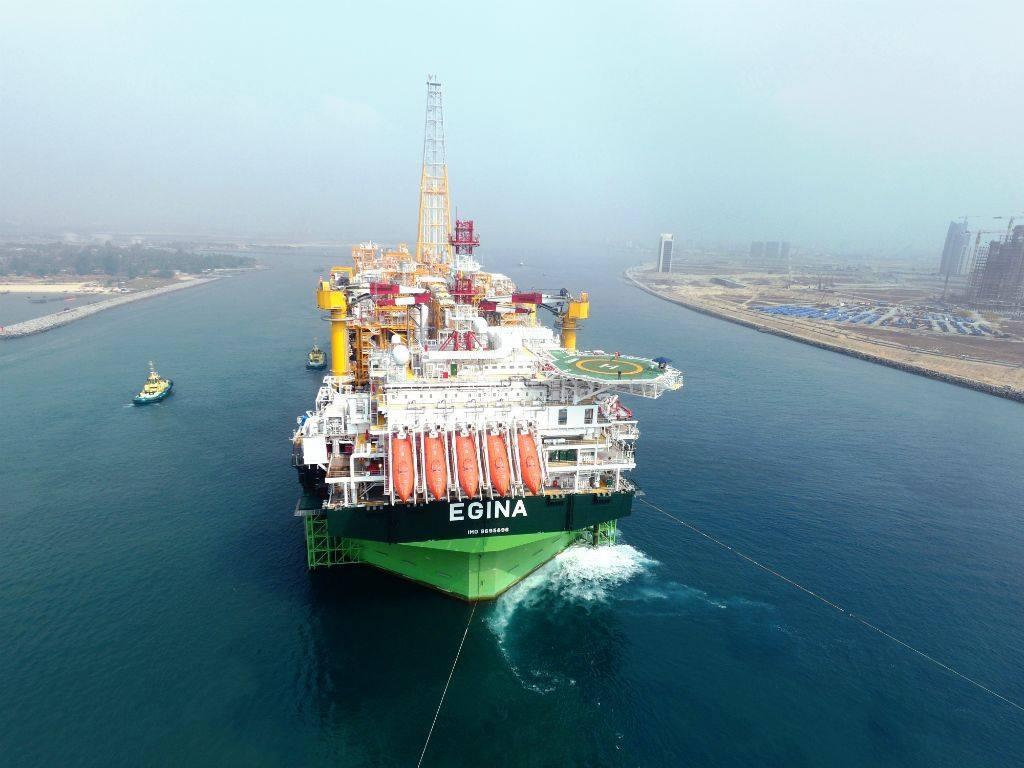
How Africa Oil Corp. made half a billion dollars from Nigeria in less than two years
Investing in Nigeria may not be for the faint-hearted, but the country continues to prove times and again that it can be a highly rewarding market. By securing an indirect interest in some of the country’s largest producing deep-water blocks in 2020, Africa Oil Corp. has shown the benefits that come with betting on Nigeria’s brownfield opportunities. In early 2020, the Canadian junior secured a 50% equity interest in Prime Oil & Gas B.V. (POGBV) for $519.5m. POGBV has an indirect 8% interest in the Chevron-operated OML 127 that contains the producing Agbami field and a 16% indirect interest in the Total-operated OML 130 that contains the producing Akpo and Egina fields. Because these represent some of Nigeria’s biggest producing assets, Africa Oil Corp.’s has relied on an average daily working interest production of 25,000 to 28,000 barrels of oil equivalent per day since 2020. Despite hedging constraining POGBV’s realized oil price to less than $60 in 2021, the company’s dividends to Africa Oil Corp. have been generous. Since January 2020, Prime has distributed eleven dividend payments totaling $500m to AOC, representing over 95% of its original equity investment. “Performance of the Company’s investment in Prime has continued to exceed expectations with strong cash flows, dividend distributions and very modest investments on the upstream assets, offshore Nigeria.” Africa Oil Corp, 13 May 2022 A Brownfield Investment Destination Nigeria offers some of the best proven reserves of oil & gas in the world, existing infrastructure and a large, established energy industry. But because of its above-ground risks, the country has repeatedly deterred foreign investors. However, deals like the one made by AOC in 2020 are proof that opportunities in the market are real. “Above-ground risks are constantly used as a pretext by foreign investors not to put their money in Nigeria. Those perceptions are often short-sighted and reveal a misunderstanding of the country’s environment. Because Nigeria is a brownfield investment destination, a successful investment strategy is one that relies on partnering with local actors who will be taking on the above-ground risks for you,” said Mickael Vogel, Hawilti’s Director & Head of Research. Last year, the country adopted the Petroleum Industry Act in a bid to bring much-needed regulatory certainty to investors. But the transition to the new regime has come with its challenges and is yet to translate into a significant increase in investments. “Recent and successful deals in Nigeria have been made by foreign companies that focus on injecting capital and bringing in technical expertise instead of seeking straightforward operatorship of the assets. In doing so, they let their Nigerian counterpart and operator navigate the country’s business environment while they focus on developing the reserves and cashing in on their investment,” added Vogel.
Read more »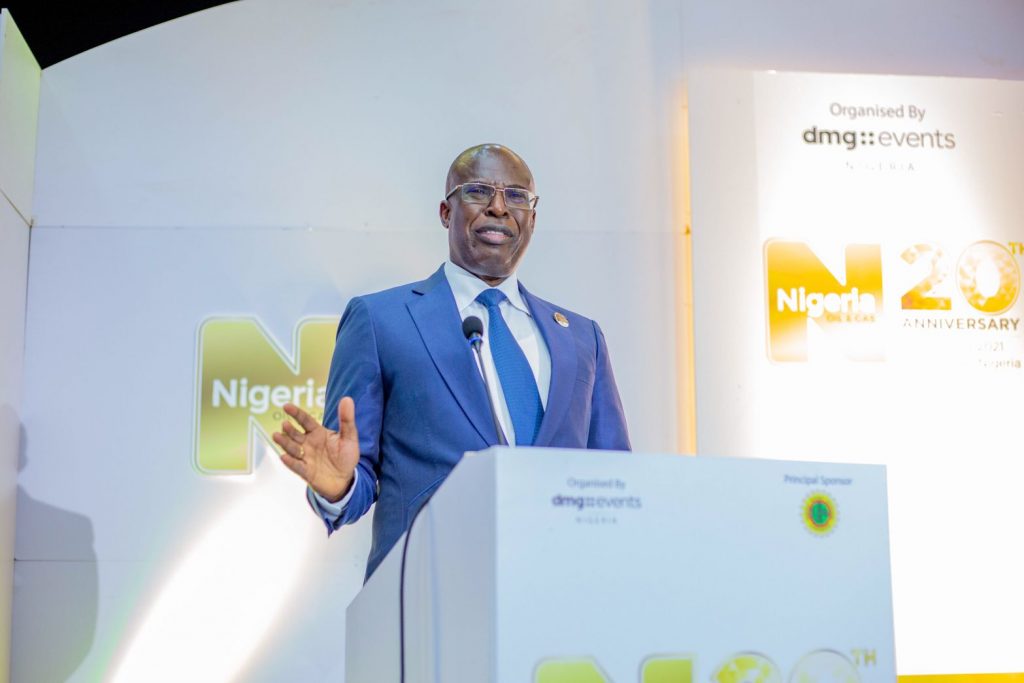
Experts To Discuss Global Opportunities For Nigeria Energy Sector At NOG 2022
The 21st edition of Nigeria’s foremost energy event, NOG Conference and Exhibition is set to hold in person at the International Conference Centre, Abuja from 4 – 7 July 2022. dmg Nigeria events, the organisers of the event stated that NOG 2022 will host key stakeholders from across the global energy value chain to discuss unique opportunities for Nigeria’s energy resources in the face of global energy demand. The conference will also discuss key issues such as financing opportunities for energy projects in sub-Saharan Africa, bridging infrastructure gap for improved domestic gas market, opportunities for indigenous companies in the PIA era, technology innovations for decarbonatization across the value chain, and other critical topics, that will help set the nation’s energy agenda for the next 12 months and beyond. The conversation at this year’s conference is significant as the industry navigates the growing global demand for renewable energy and climate friendly sources of energy in the face of Africa’s unique energy mix requirements. Many industry leaders have also dubbed this to be an opportunity to seek a lasting solution to Africa’s energy poverty and bring the much-needed socioeconomic development. As part of its commitment to the development of the Nigerian energy industry, NOG will also provide the opportunity to showcase and train industry stakeholders on best in class technology innovations across the value chain through its CPD certified NOG Technical Seminar. The Technical Seminar will host sessions in 5 different streams covering upstream operation, midstream, downstream, digitization and project management. The NOG Conference and Exhibition annually hosts over 500 delegates, 300 exhibiting companies, 80 industry expert speakers and 40 sessions across 2 conference streams. 2022 Sponsors include: NNPC, ExxonMobil, Nigeria LNG Limited, Shell, Chevron, Total Energies, Oando, NCDMB, Prime Atlantic, DCPL, Coleman Wires And Cables, UTM FLNG Limited, First E & P, ND Westers, Samsung, Montego, Nivafer, Russell Smith, Vurin Group, MG Vowgas, WAV, Trexm Chemicals, and MicCom, Niger Delta Exploration & Production Plc, Eleva Group and Heritage to date. Hawilti is a proud Research & Content Partner of the 21st NOG Conference & Exhibition.
Read more »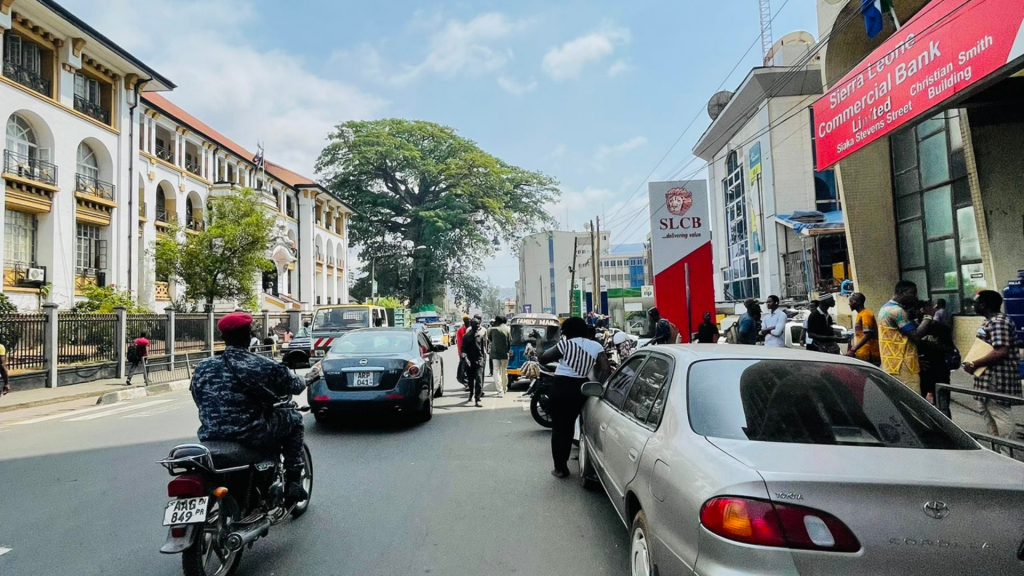
Wildcat Petroleum granted non-exclusive right over 20 blocks offshore Sierra Leone
LSE-listed Wildcat Petroleum (WCAT) had announced the signing of a Reconnaissance Permit Agreement with the Petroleum Directorate of Sierra Leone (PDSL). The permit grants Wildcat Petroleum non-exclusive rights to conduct reconnaissance operations over 24,000 km2 for a period of six months. The company will notably carry out a desktop study using geophysical and geological data to identify blocks with the highest potential to yield commercially viable oil finds. “If block(s) with the potential of containing commercially viable oil discoveries are identified then WCAT intends to enter negotiations with the PDSL for a Petroleum Exploration and Production Licence(s),” Wildcat Petroleum said in a statement yesterday. The study area notably contains two uncommercial oil discoveries, Mercury and Jupiter, discovered by Anadarko Petroleum, Tullow Oil and Repsol. Based on previous exploration in the country and the presence of hydrocarbon shows in the wells drilled offshore Sierra Leone, Wildcat Petroleum believes there is a working petroleum system there. “In the period since these blocks were relinquish billions of barrels of oil resources have been discovered in the Cretaceous fans beneath the deep waters of the Guyana-Suriname Basin in South America Ð which can be linked tectonically & litho-stratigraphically with the conjugate Sierra Leone Basin,” the company added. Wildcat Petroleum was incorporated in 2020 and was admitted to the London Stock Exchange the same year. In June 2021, the company announced that it would initially focus on securing and developing a proven upstream asset in Angola, with a secondary focus on Namibia for exploration upside.
Read more »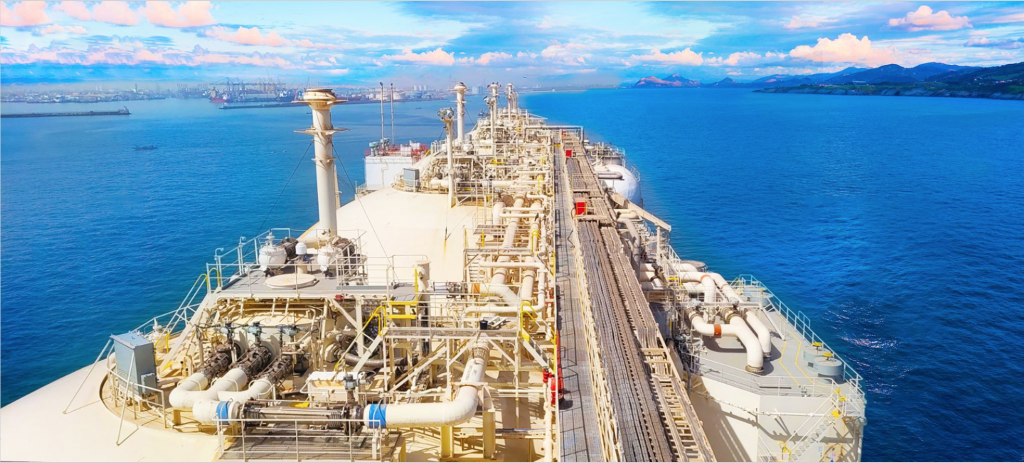
AG&P delivers world’s first modular FSRU in Senegal
GAS Entec, a subsidiary of Singapore-based Atlantic Gulf & Pacific International (AG&P) has completed the conversion of a 125,000 m3 LNG carrier for KARMOL, the joint-venture of Turkey’s Karpowership and Japan’s Mitsui OSK Lines. The converted 84 MMscf/d modular floating storage and regasification unit (M-FSRU) is a first in the world and will be delivering LNG to the 236 MW Karadeniz Powership Aysegul Sultan in the Port of Dakar. “Gas Entec’s proprietary, patented RegasTainer® technology offers flexibility to scale the capacity of the FSRU up and down from 15 to 300 mmscfd with minimized downtime, allowing the vessel to be repurposed as power requirements grow in a market,” AG&P said in a statement today. Karpowership’s Ayşegül Sultan power barge was relocated offshore Dakar from Ghana in 2019. It has run on heavy fuel oil (HFO) until the arrival of the KARMOL LNGT Powership Africa FSRU in 2021, and currently represents 15% of Senegal’s electricity supply. In 2021, the Mauritius Commercial Bank (MCB) announced a $140m syndicated project finance facility to convert the facility to natural gas.
Read more »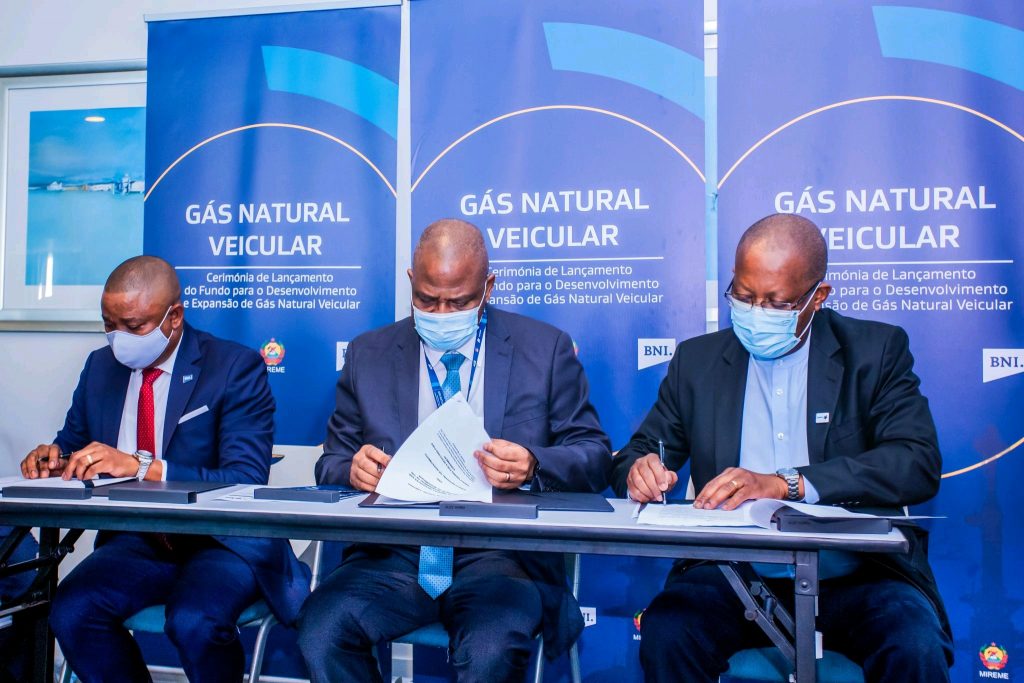
Sasol launches $5m CNG fund with Mozambique’s National Investment Bank (BNI)
To support gas monetization in Mozambique, Sasol has signed today an agreement with the country’s National Investment Bank (BNI) and the Ministry of Mineral Resources and Energy to set up a $5m fund for the development and expansion of compressed natural gas (CNG) projects. The fund will be financed by Sasol and managed by BNI and open to any individuals or SMEs seeking to convert to gas. “The CNG Credit Line offers special conditions for those interested in converting their vehicles to natural gas, and for retailers wishing to equip their fuel stations with CNG refuelling units,” Sasol said. Sasol is notably expecting the credit line to benefit public transport operators seeking to decrease their reliance on diesel at a time when soaring global prices put pressure on net importers like Mozambique.
Read more »